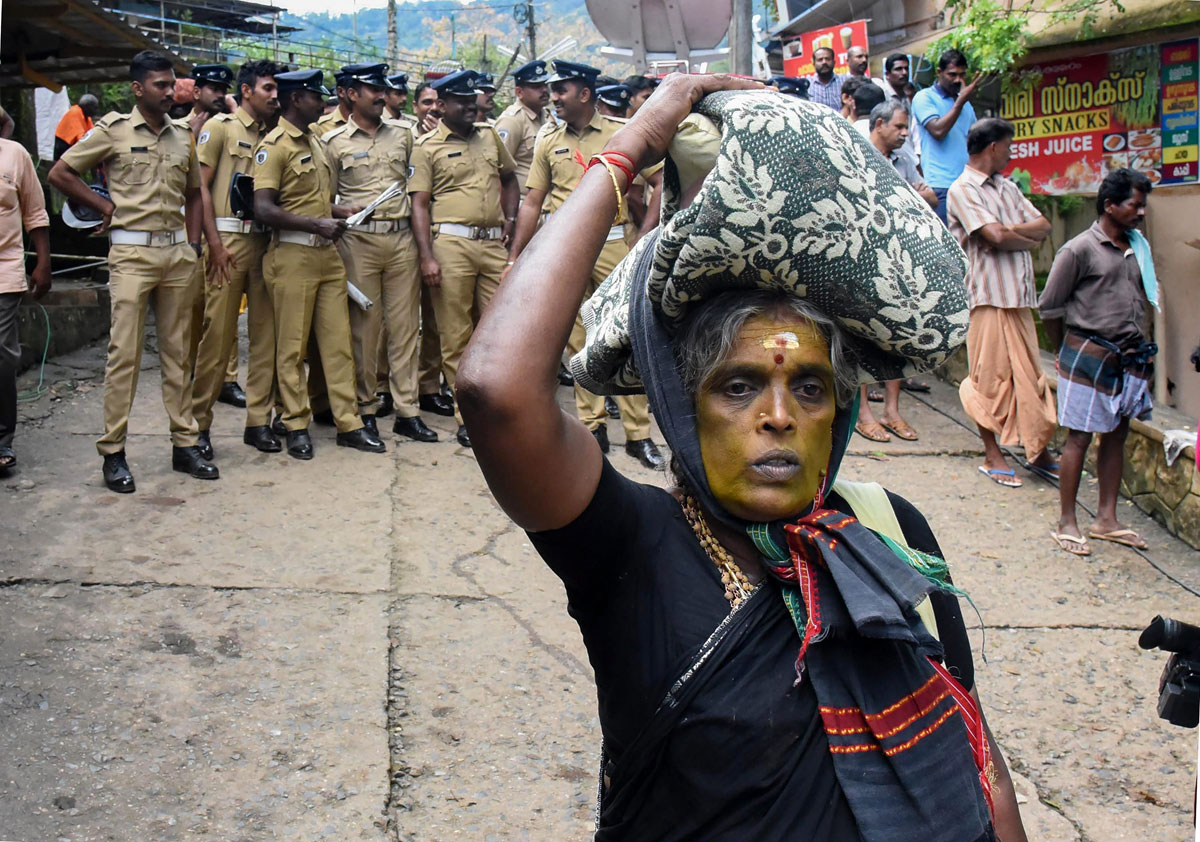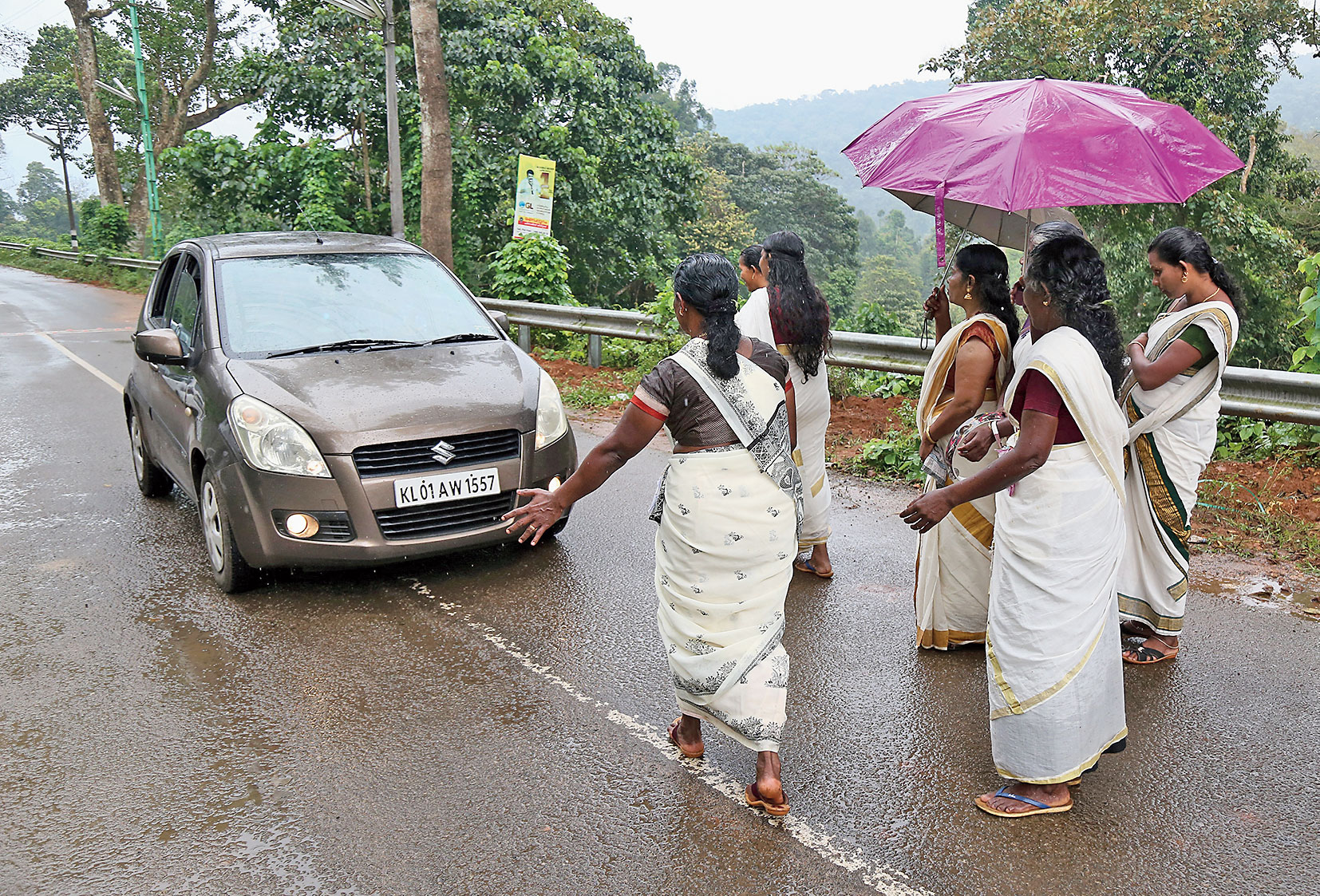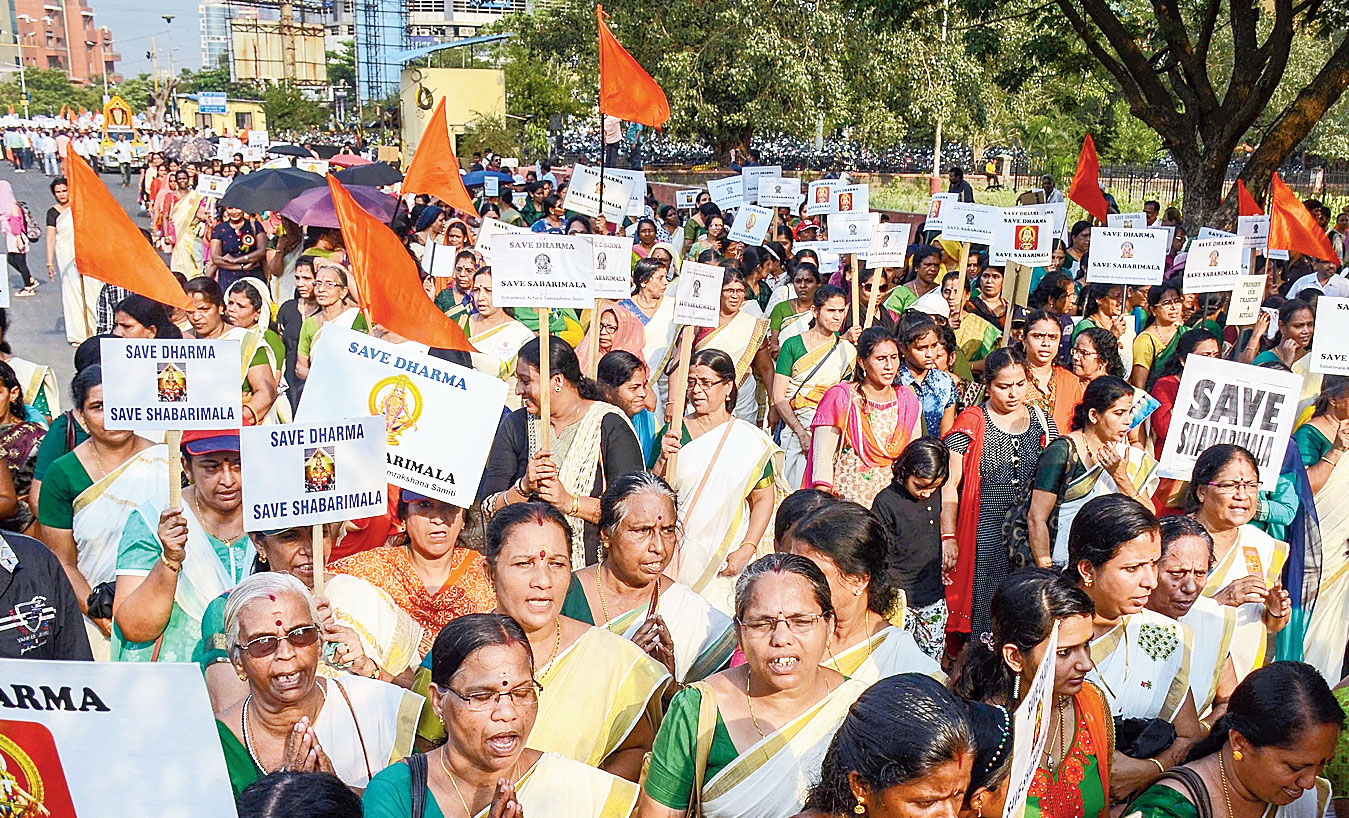Women journalists were heckled, their vehicles smashed and young female Ayyappa devotees turned back as hordes of Hindu right activists besieged the road leading to the Sabarimala temple whose gates open for women of menstrual age Wednesday evening for the first time after the Supreme Court's verdict.
The political slugfest over the Kerala government's decision not to file a review petition against the apex court order also escalated as tempers frayed in areas surrounding the hill shrine that were on edge.
Activist Rahul Easwar, a front-ranking leader of the protesters and votary of continuance of the tradition barring girls and women between 10 and 50 years from entering the temple, a custom which the Supreme Court overturned on September 28, was arrested at Pamba at the foothill from where the trek to the shrine begins.
Simmering tension prevailing in Nilackal since morning erupted into raucous rowdyism as scores of activists of fringe groups heckled women journalists of at least four national TV channels and vandalised their vehicles.
BJP state general secretaries, K. Surendran, M.T. Ramesh and Shobha Surendran were among those present.
They alleged the police removed the members of the tantri and royal families without any provocation.
State Congress working president K. Sudhakaran led his party workers in a protest at Nilackal to express solidarity with Ayyappa devotees.
An embattled Left Front government reacted sharply to the protests, with the state's religious trusts minister Kadakampally Surendran calling them “politically motivated”.
Surendran, who reviewed the situation and preparations for the three-month-long Mandalam-Makaravilakku-festival beginning November 17 at Sannidhanam (Sabarimala temple complex), said the government would tackle the agitation politically.
”The BJP-RSS are trying to create tension and destroy the peaceful atmosphere in Kerala for political gain. We know the agenda of the RSS and BJP very well,” he said, and insisted the government did not want any confrontation with believers.
Just before his arrest, Easwar, the president of Ayyappa Dharma Sena, said the protests would be “non-violent, non-communal and non-political”.
Easwar, who was kept at the Pamba police station, said Ayyappa devotees only wanted their right under Article 25 of the Constitution that provided for freedom of conscience and free profession, practice and propagation of religion to be protected.

An elderly woman on her way to Sabarimala Temple as police personnel stand on guard, in Pathanamthitta, Wednesday. PTI Photo
National TV showed protesters wearing black and saffron turbans running after their cars, violently pounding and kicking the vehicles in a bid to stop them from proceeding to Pamba from Nilackal on way to Sabarimala.
Unfazed by violent protests, Madhavi, a gutsy woman from Andhra Pradesh in her 40s, tried to climb the Sabarimala hills to reach the Lord Ayyappa temple but was forced to return to Pamba, menaced by agitated male devotees. She had to be escorted back by police.
Hundreds of policemen could be seen in Pamba, Nilackal and Erumeli--the important landmarks on way to Sabarimala.
Liby, a woman from Kerala's Alappuzha, also in the ”banned” age group, was prevented from proceeding to Sabarimala at Pathanamthitta bus terminal. She was escorted to safety by police.
Both the Congress, the main opposition party in Kerala, and the BJP, which is desperately seeking to expand its footprint in the state, have lent support to the agitation against the Supreme Court verdict.
A group of BJP leaders held 'namajapa' (prayer) meeting at Pamba soon after police removed the members of tantri (head priest) family and Pandalam royals, the custodian of the shrine, who were protesting against the government's decision to enforce the top court's order.












